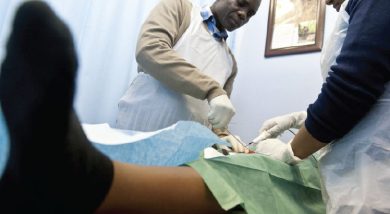Pooled procurement towards MW2063
Malawians continue to experience the devastating effects of the Covid-19 pandemic and the loss of loved ones, job losses and a broken economy.
In 2020, it was projected that it would take up to three years for big economies such as USA to recover economically from the effects of the Covid-19 pandemic and it would take more years for middle income as well as developing nations to achieve such recovery.
The pandemic hit the globe hard, bringing socioeconomic systems and sectors at all levels to their knees. Developmental activities halted, most countries closed their borders, and airline companies, for the first time, suspended flights.
People were denied dignified burial of their loved ones as burials were done by healthcare workers, with restricted numbers of people in attendance. Covid-19 pandemic remains a recorded disease never seen before.
The Warm Heart of Africa, as Malawi is fondly called, was not spared by the pandemic and it has as of January 24 2023 recorded 88 446 confirmed cases cumulatively, according to Minister of Health Khumbize Kandodo Chiponda.
The minister indicated in a statement the number of recorded deaths stands at 2 686, and cumulatively, 85 337 cases have now recovered, registering a 96.51 percent recovery rate.
Amid the doom and gloom, other international organisations intervened to help nations resurrect their economies.

at a public health facility
Covax Facility, which is an affiliation co-led by the Coalition for Epidemic Preparedness, Gavi, the World Health Organisation (WHO) and the major delivery partner Unicef, are among the institutions that intervened.
Despite facing disrupted supply chains with many bottlenecks, delay in processes and unprecedented cost, vaccines, according to reports by the mentioned institutions, reached all countries where an SOS was raised, even hard to reach areas.
As of the hardest-hit countries, Malawi also benefitted from the supplies.
Malawi in line with its long-term development plan MW2063 Agenda should embrace pooled procurement syatem. This would help the country to have substantial amounts of pharmaceuticals to achieve the MW2063 and meet the Sustainable Development Goal 3 which emphasises good health and well being of the people.
Pooled procurement is a guideline on country by WHO, which is a formal arrangement where financial and other resources are combined across different authorities, to create a single entity for procuring health products on behalf of individual purchasing authorities.
For Malawi to achieve these important milestones, it requires improved health care facilities that expose both health providers and patients to a range of modern pharmaceutical products at low cost.
Many countries in the Sub Saharan Africa region meet with similar trends on the global pharmaceutical market; price elasticity, price differentiation, scarcity of suppliers and unsolved puzzles of where and when to buy. Centralisation or “pooling” the procurement of the pharmaceutical, will also help to end some of the diseases that have affected the people in the region.
The Covax made strides in introducing a wide range of vaccines that shrunk the Covid-19 confirmed cases. This strategy is there to save costs for the nations, to avoid wastage of time when doing single sourcing as an individual country and to showcase that always there is integrity and transparency in collective effort.
In 2001, the African Union (AU) member states signed the Abuja Declaration, pledging 15 percent of every country’s national budget to go towards improving health care systems.
But for Malawi, budget allocation towards health hovers around nine percent, a thing health activist Maziko Matemba said needed to be looked into to make adjustments.
“It is important to abide by what we sign for. Not only abiding, but it is a necessity to meet the needs of the health sector,” Matemba said.
On top of that the AU recommended that the Southern Africa Development Community (Sadc), which is a regional economic community (REC), should create a health care facility to aid member States if they fail to meet the pledge or a health care hiccup.
The same prophetic Abuja Declaration foresighted a need to form regional blocks to centralise the procurement systems such as the pool procurement. Recommendation two of the Abuja Declaration is to form regional public-private partnerships to leverage additional funding sources and private sector expertise in addressing challenges.
So far, a series of meetings have followed to establish regional blocs, diplomatic networks which would help the countries to make informed decisions on the establishment of pool procurement.
The MW2063 framework will guide that development and that attainment of these SDG Goal number 3 and for these to be a reality, it needs a Pooled Procurement sourcing of services, works and goods in particular of the pharmaceutical industry.
On pooled procurement, Matemba said he was aware Malawi put in place strategies but the programme is yet to be implemented and discussions with partners are under way.
He touted the programme as good and effective. n





